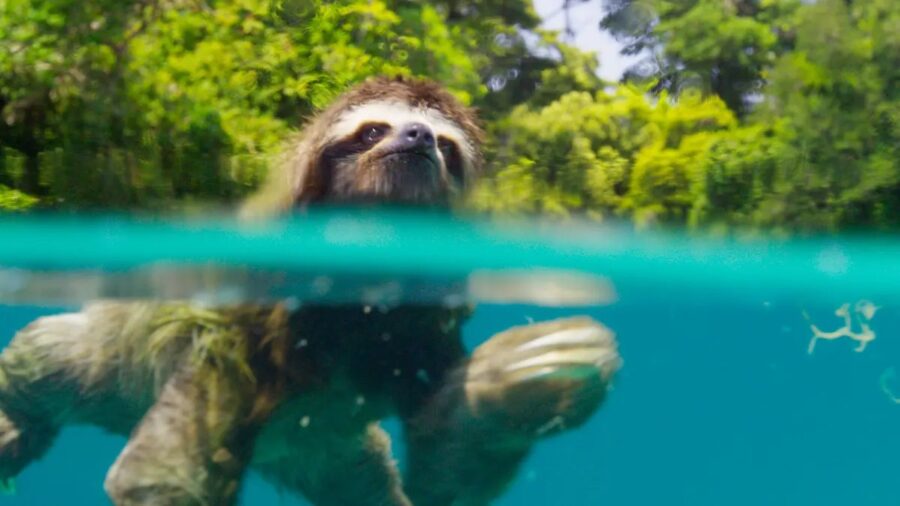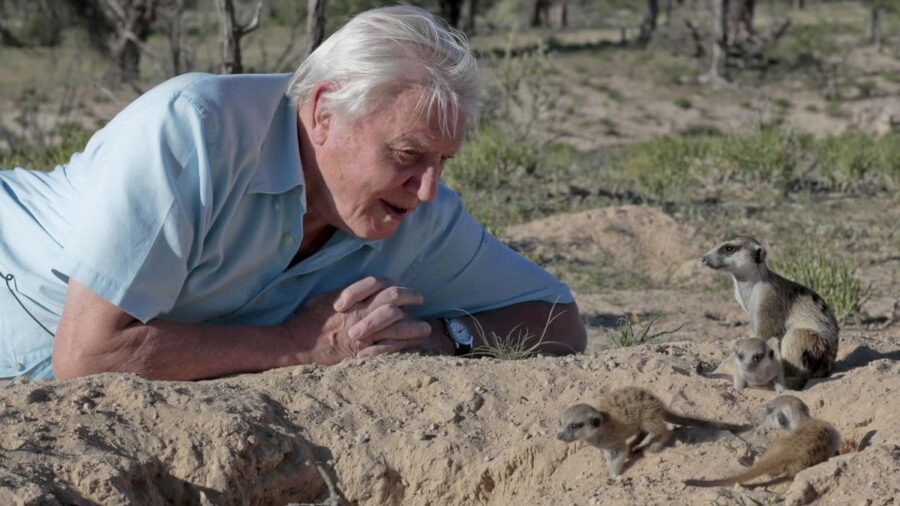The Best Nature Series Is Back And Better Than Ever

David Attenborough’s Planet Earth has returned for a third season on BBC One, and has received stunning reviews from publications such as The Guardian. The awe-inspiring nature series is known to be one of the greatest of all time, showcasing the pinnacle of film technology, accompanied by the warm and soothing tones of the legendary 97 year-old broadcaster.
David Attenborough’s Planet Earth is back for Season 3 on BBC One.
Planet Earth 3 sees the series going to bold new places, and taking on a much darker tone than its predecessors, as the series displays a number of major shifts in the normal behavior of animals, brought on by human intervention, climate change, and a shifting landscape which sees creatures across the globe adapting to new stimuli.
The decades-old footage shows a stark and horrifying change wrought by the unintended consequences of human acts, which have all but wiped out the previously thriving species.
The premiere of the award-winning program opened to a viewership of over 5.6 million people this past weekend, with seven more episodes to air weekly. Like previous installments, Planet Earth 3 makes use of a number of incredible techniques to capture rare footage of animals in their natural habitats, including drone footage, cameras mounted on submersible vessels, trail cams, and a host of talented camera work by operators who place themselves in extreme environments for the sake of a shot. The footage has been captured over the course of 5 years, with more than 43 countries and a number of unincorporated territories explored.
Unlike the first two series, Planet Earth 3 has a specific focus on the impact of man-made climate change, and the fascinating ways that animals adapt to changes within their natural habitat. The premiere episode specifically focused on a cautionary tale of endangered green turtles on a remote island in the Great Barrier Reef, juxtaposed beside footage of David Attenborough visiting the very same island over 60 years ago.
The decades-old footage shows a stark and horrifying change wrought by the unintended consequences of human acts, which have all but wiped out the previously thriving species.
Similarly, the plight of Caribbean flamingos in Mexico’s Yucatán Peninsula are examined in Planet Earth 3, showcasing the dire straights that these species’ face, which include entire nests being wiped out against the rocks of the beach due to eroding nesting spaces. As the chicks are shown withering and cold, David Attenborough reminds the viewer of the beauty and fragility of life on earth, using his characteristic blend of poetic language and unmatched diction.

For those looking to catch Planet Earth 3 live as it airs, the series has transitioned to a new time slot on its BBC One network, airing at 6:15 PM British Summer Time. This time slot clocks in at 1:15 PM EST for those on the East Coast of the United States. The choice to shift the series to an earlier slot was made by Attenborough and his Planet Earth producers in a specific effort to get more young people to observe and understand the beauty and wonders of the natural world.
Unlike the first two series, Planet Earth 3 has a specific focus on the impact of man-made climate change, and the fascinating ways that animals adapt to changes within their natural habitat.
As film technology has continued to progress, and the genius and ingenuity of Planet Earth producers continue to accomplish what no Hollywood film could ever dream of, the series has become an incredibly important aspect of humankind’s interaction with nature. Though some zoos and aquariums pride themselves on ethical standards and practices, holding a focus on rehabilitating animals rather than holding them captive, it seems clear that the future of wildlife study lies in series such as Planet Earth 3 for the average person. With any luck, we may see a more cheerful end to the eight-part series, as there is still hope for human-kind to get its act together and save the environment.












